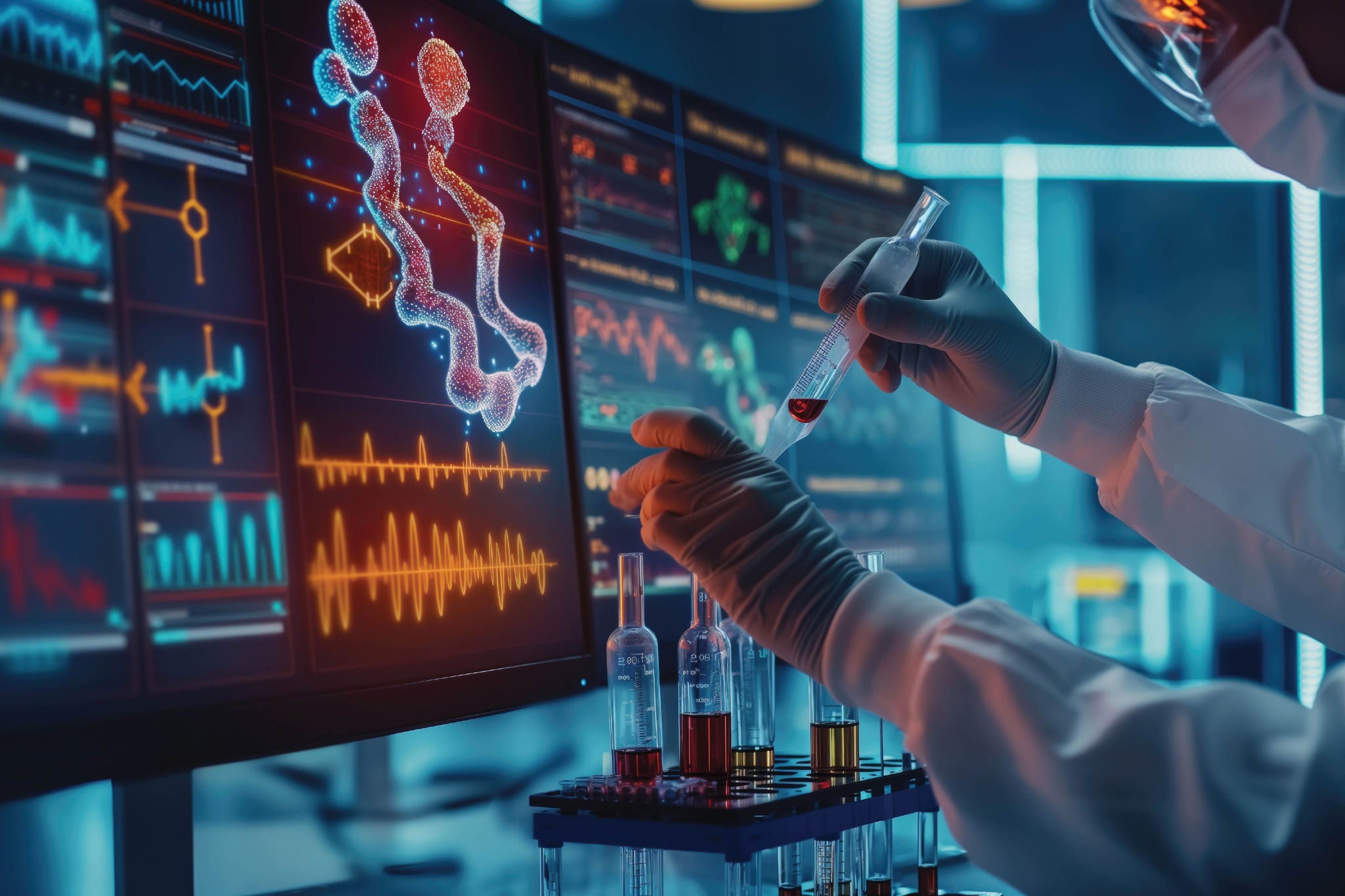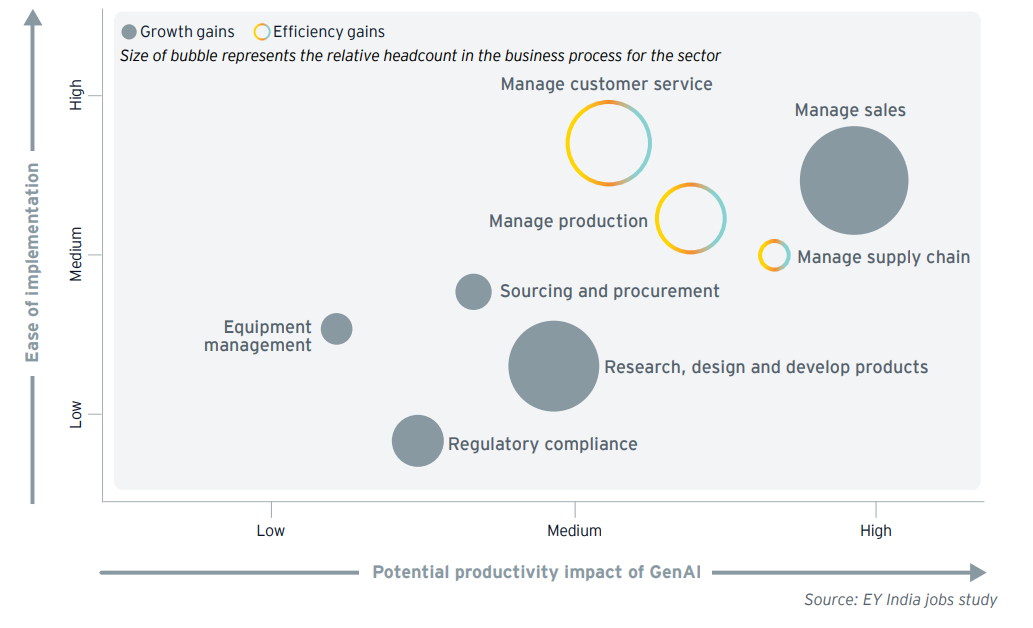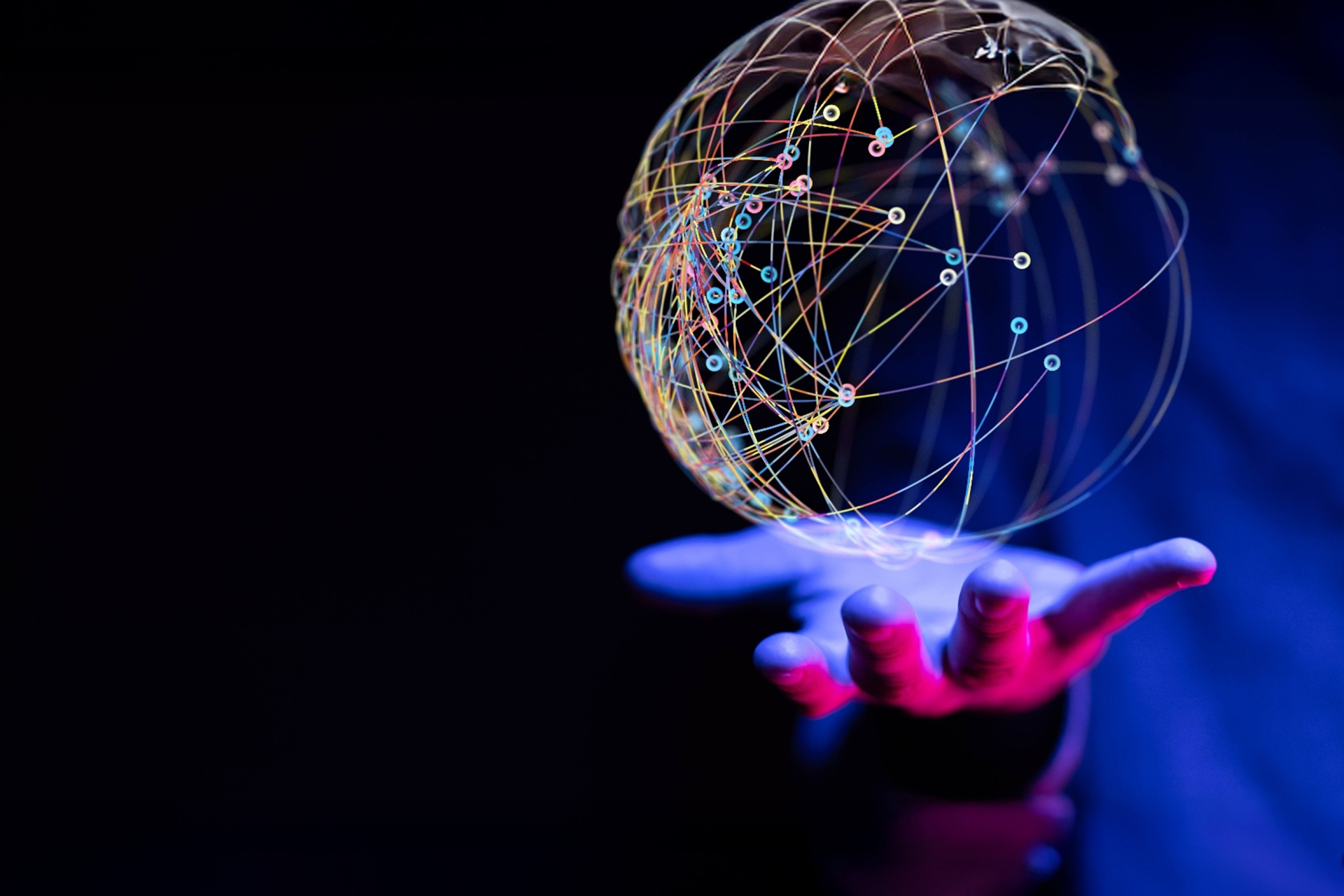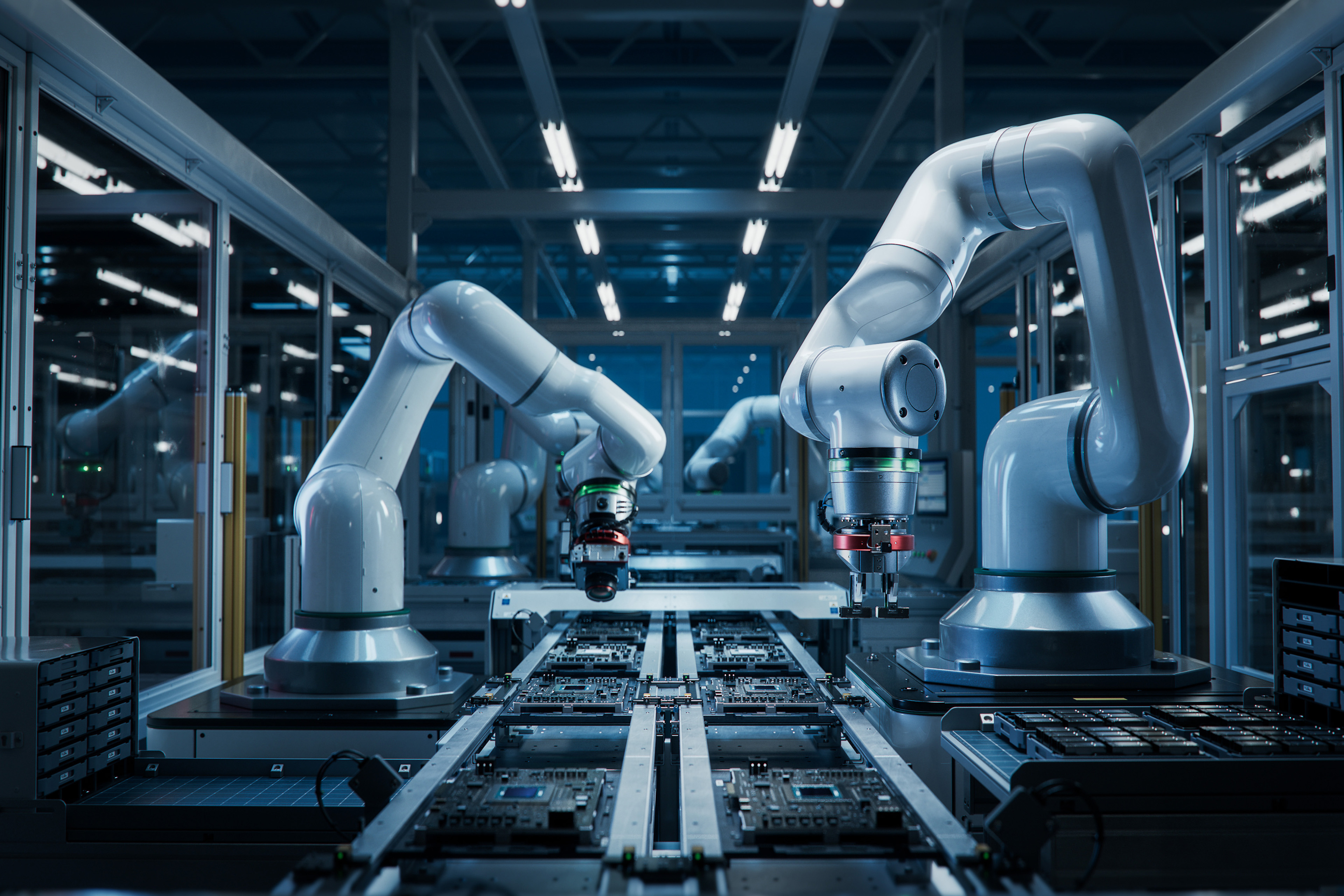EY refers to the global organization, and may refer to one or more, of the member firms of Ernst & Young Global Limited, each of which is a separate legal entity. Ernst & Young Global Limited, a UK company limited by guarantee, does not provide services to clients.

- GenAI is transforming drug discovery, manufacturing and quality management in the life sciences sector
- GenAI is expected to boost productivity by 32% to 34% by 2030, helping sales, supply chain and production functions
- However, to fully harness GenAI, life sciences organizations need to address challenges like data privacy, infrastructure gaps and skill shortages
Year 2024 marked a groundbreaking moment, as the Nobel Prize in Chemistry was awarded to Demis Hassabis, John Jumper, and David Baker for their pioneering work in protein science using AI models like AlphaFold, which accurately predicts protein structures. This achievement highlights the transformative potential of GenAI, especially in the life sciences sector, where pharmaceuticals and medtech are leveraging such advancements to catalyze drug discovery, enhance clinical trials, optimize manufacturing, strengthen quality adherence and reimagine drug launches and commercial models.
Globally, life sciences organizations are leveraging GenAI across the value chain to accelerate drug development and boost productivity. India’s life sciences sector is steadily integrating GenAI across its value chain. Building on past digital transformation initiatives, Indian pharma leaders recognize GenAI’s potential to process structured and unstructured data, synthesizing insights to generate molecular, textual, and visual content.
GenAI impact on productivity across life sciences value chain

View the full EY AIdea 2025 report
Navigate your AI journey
Get in touch with us to learn more about EY.ai, a holistic approach to AI.


